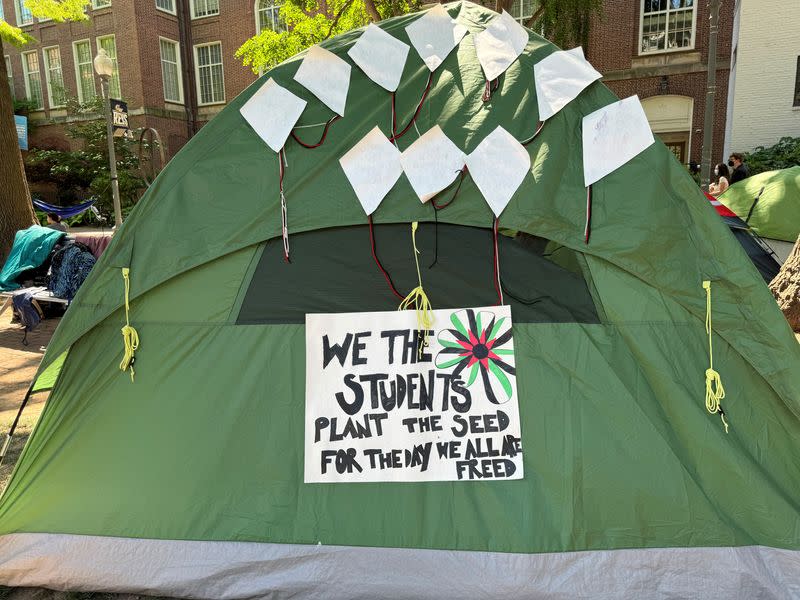White House warns Iran against meddling in Gaza protests in US

WASHINGTON (Reuters) - The White House on Tuesday accused Tehran of trying to take advantage of Gaza-related protests in the U.S. and described such behavior as unacceptable, following a warning by the top U.S. intelligence official that Iran was trying to stoke discord in American society.
The warning, issued earlier on Tuesday by Director of National Intelligence Avril Haines, said actors tied to Iran's government had posed as activists online, sought to encourage protests regarding Gaza and even provided demonstrators with financial support.
White House spokesperson Karine Jean-Pierre said freedom of expression was vital to American democracy, but the government also had a duty to warn citizens about foreign influence operations.
"Americans across the political spectrum, acting in good faith, have sought to express their own independent views on the conflict in Gaza. The freedom to express diverse views when done peacefully is essential to our democracy," she said.
"At the same time, the U.S. government has a duty to warn Americans about foreign malign influences. ... We will continue to expose attempts to undermine our democracy in our society just as we are today."
Tehran had no immediate comment.
An official with the Office of the Director of National Intelligence (ODNI) said the warning on Iran showed how countries tried to take advantage of controversial issues in the run-up to elections, both to embarrass the U.S. and "inflame social division."
The official, who asked not to be named, said Iran had a longstanding interest in exploiting U.S. political and social tensions, including through social media.
"In particular, we are monitoring Iranian actors who are seeking to exacerbate tensions on the Israel-Gaza conflict," the official said.
(Reporting by Steve Holland, Tyler Clifford, Andrea Shalal and Jonathan Landay; editing by Rami Ayyub and Richard Chang)


